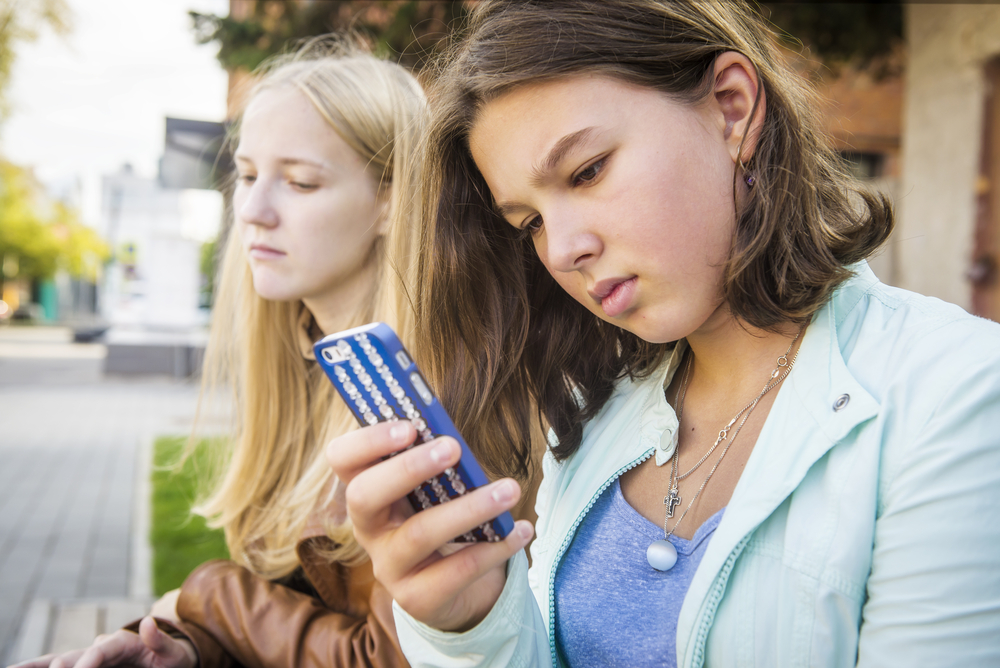
 Over the years, I’ve been the star of a number of sub-stellar parenting moments. More than once, I found myself reprimanding my kids for doing things that kids do — things I never stopped to teach them otherwise.
Over the years, I’ve been the star of a number of sub-stellar parenting moments. More than once, I found myself reprimanding my kids for doing things that kids do — things I never stopped to teach them otherwise.
Like the time I reprimanded my son for not thanking his friend’s mother properly before we left a birthday party. He was seven when his etiquette deficit disorder surfaced. Or the time I had a meltdown because my daughter cut her hair off. She was five when she brazenly declared her scorn for the ponytail.
The problem: I assumed they knew.
Isn’t the same true when it comes to our children’s understanding of the online world? We can be quick to correct our kids when they fail to exercise the best judgment or handle a situation the way we think they should online.
But often what’s needed first is a parental pause to ask ourselves: Am I assuming they know? Have I taken the time to define and discuss the issue?
With that in mind, here are five digitally-rich terms dominating the online conversation. If possible, find a few pockets of time this week and start from the beginning — define the words, then discuss them with your kids. You may be surprised where the conversation goes.
5 digital terms that matter
Internet Privacy
Internet privacy is the personal privacy that every person is entitled to when they display, store, or provide information regarding themselves on the internet.
Highlight: We see and use this word often but do our kids know what it means? Your personal information has value, like money. Guard it. Lock it down. Also, respect the privacy of others. Be mindful about accidentally giving away a friend’s information, sharing photos without permission, or sharing secrets. Remember: Nothing shared online (even in a direct message or private text) is private—nothing. Smart people get hacked every day.
Ask: Did you know that when you go online, websites and apps track your activity to glean personal information? What are some ways you can control that? Do you know why people want your data?
Act: Use privacy settings on all apps, turn off cookies in search engines, review privacy policies of apps, and create bullet-proof passwords.
Digital Wellbeing
Digital wellbeing (also called digital wellness) is an ongoing awareness of how social media and technology impacts our emotional and physical health.
Highlight: Every choice we make online can affect our wellbeing or alter our sense of security and peace. Focusing on wellbeing includes taking preventative measures, making choices, and choosing behaviors that build help us build a healthy relationship with technology. Improving one’s digital wellbeing is an on-going process.
Ask: What do you like to do online that makes you feel good about yourself? What kinds of interactions make you feel anxious, excluded, or sad? How much time online do you think is healthy?
Act: Digital wellness begins at home. To help kids “curb the urge” to post so frequently, give them a “quality over quantity” challenge. Establish tech curfews and balance screen time to green time. Choose apps and products that include wellbeing features in their design. Consider security software that blocks inappropriate apps, filters disturbing content, and curbs screen time.
Media Literacy
Media literacy is the ability to access, analyze, evaluate, and create media in a variety of forms. It’s the ability to think critically about the messages you encounter.
Highlight: Technology has redefined media. Today, anyone can be a content creator and publisher online, which makes it difficult to discern the credibility of the information we encounter. The goal of media literacy curriculum in education is to equip kids to become critical thinkers, effective communicators, and responsible digital citizens.
Ask: Who created this content? Is it balanced or one-sided? What is the author’s motive behind it? Should I share this? How might someone else see this differently?
Act: Use online resources such as Cyberwise to explore concepts such as clickbait, bias, psychographics, cyberethics, stereotypes, fake news, critical thinking/viewing, and digital citizenship. Also, download Google’s new Be Internet Awesome media literacy curriculum.
Empathy
Empathy is stepping into the shoes of another person to better understand and feel what they are going through.

Highlight: Empathy is a powerful skill in the online world. Empathy helps dissolve stereotypes, perceptions, and prejudices. According to Dr. Michelle Borba, empathetic children practice these nine habits that run contrary to today’s “selfie syndrome” culture. Empathy-building habits include moral courage, kindness, and emotional literacy. Without empathy, people can be “mean behind the screen” online. But remember: There is also a lot of people practicing empathy online who are genuine “helpers.” Be a helper.
Ask: How can you tell when someone “gets you” or understands what you are going through? How do they express that? Is it hard for you to stop and try to relate to what someone else is feeling or see a situation through their eyes? What thoughts or emotions get in your way?
Act: Practice focusing outward when you are online. Is there anyone who seems lonely, excluded, or in distress? Offer a kind word, an encouragement, and ask questions to learn more about them. (Note: Empathy is an emotion/skill kids learn over time with practice and parental modeling).
Cyberbullying
Cyberbullying is the use of technology to harass, threaten, embarrass, shame, or target another person online.
Highlight: Not all kids understand the scope of cyberbullying, which can include spreading rumors, sending inappropriate photos, gossiping, subtweeting, and excessive messaging. Kids often mistake cyberbullying for digital drama and overlook abusive behavior. While kids are usually referenced in cyberbullying, the increase in adults involved in online shaming, unfortunately, is quickly changing that ratio.
Ask: Do you think words online can hurt someone in a way, more than words said face-to-face? Why? Have you ever experienced cyberbullying? Would you tell a parent or teacher about it? Why or why not?
Act: Be aware of changes in your child’s behavior and pay attention to his or her online communities. Encourage kids to report bullying (aimed at them or someone else). Talk about what it means to be an Upstander when bullied. If the situation is unresolvable and escalates to threats of violence, report it immediately to law enforcement.
We hope these five concepts spark some lively discussions around your dinner table this week. Depending on the age of your child, you can scale the conversation to fit. And don’t be scared off by eye rolls or sighs, parents. Press into the hard conversations and be consistent. Your voice matters in their noisy, digital world.
The post 5 Digitally-Rich Terms to Define, Discuss with Your Kids appeared first on McAfee Blogs.
Premium Domain Names – transcom.uk
Transcom ISP – The UK’s Best Business ISP
DoubleCheck any website at doublecheck.uk